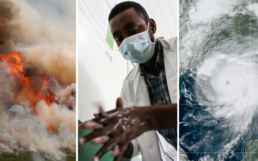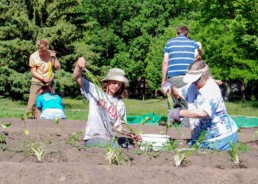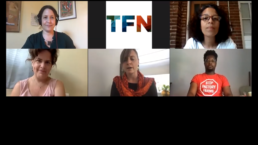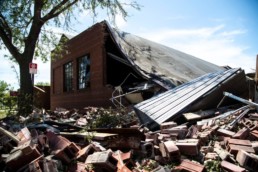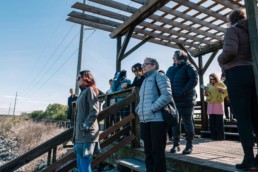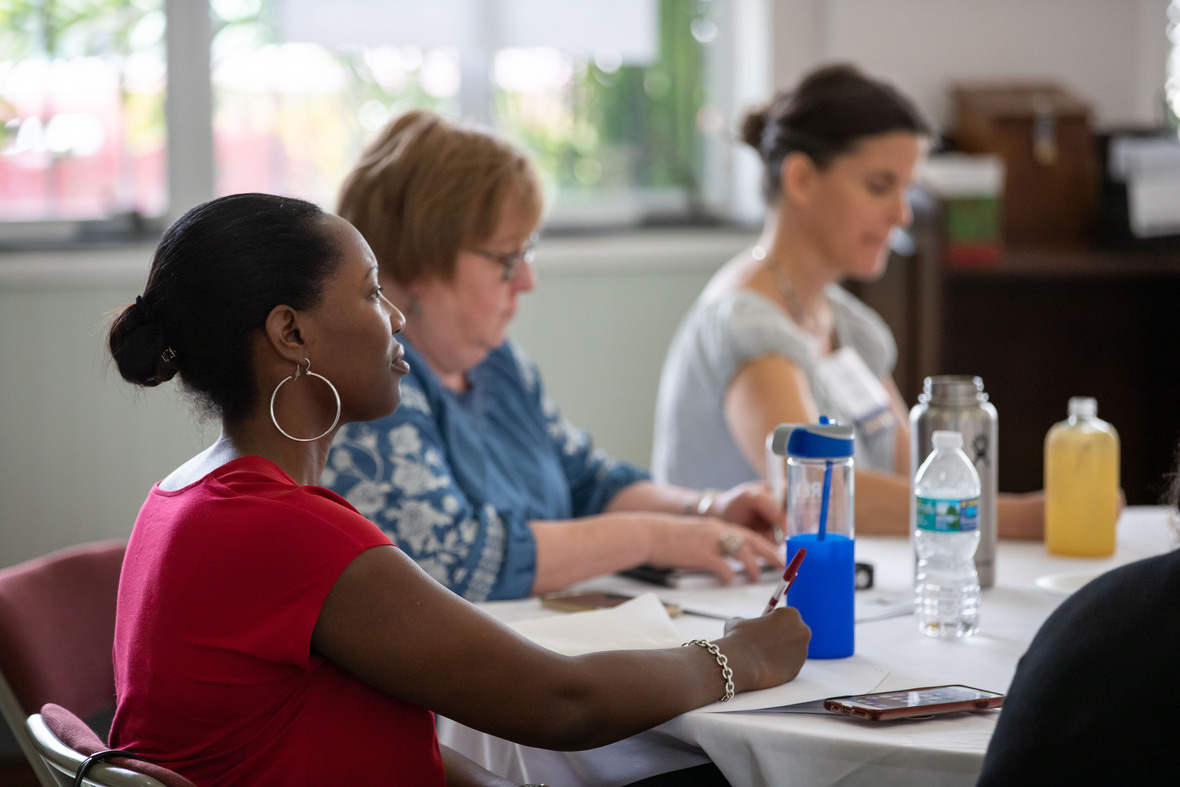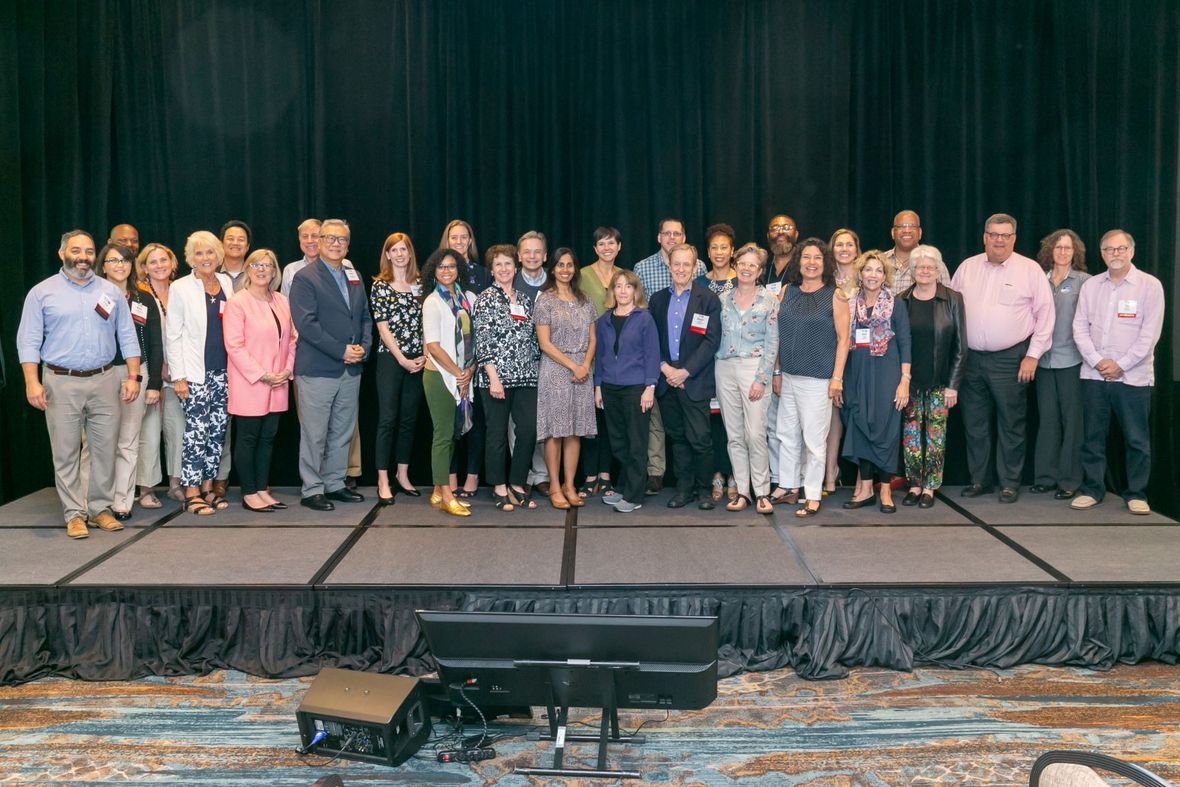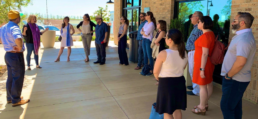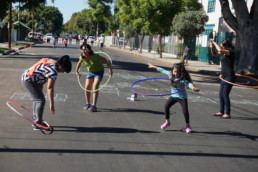Is 2020 Over? Learn how philanthropy is responding to a year of non-stop disasters
BY TFN STAFF
TFN is among the co-sponsors of this Sept. 24 webinar organized by the Center for Disaster Philanthropy (CDP). TFN works with CDP to provides curriculum, facilitation and technical assistance to TFN's Philanthropic Preparedness, Resiliency and Emergency Partnership (PPREP).
Is 2020 Over? Responding to Multiple Disasters Amid COVID-19 and Climate Change
Thursday, Sept. 24, 3 p.m. ET
It feels like 2020 has lasted 15 years. The Center for Disaster Philanthropy (CDP) staff started following COVID-19 in January while we were also responding to the Australian wildfires and the earthquakes in Puerto Rico. The beginning of the year is usually a slower time, but 2020 began as it meant to go on: with continual disasters all existing within the context of the global pandemic. It has also been a year when climate change has given us urgent reminders of its impact on disasters.
In this webinar, CDP staff will reflect on lessons learned, challenges and opportunities presented by different disasters – particularly wildfires, hurricanes and the derecho – and how COVID-19 has framed the response. We will share insights from our response to the global pandemic and how climate change has affected the disaster landscape.
Grantmakers and donors will hear about some of the fantastic organizations doing critical work on the ground and how they can support response and recovery in ways that prioritize communities of color and other vulnerable populations during these challenging times.
Register for the webinar here.
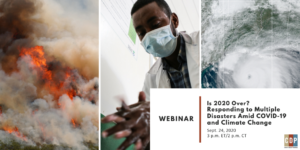
Partners for Places Mini Grants: Applications Now Open for Round 2!
BY TFN STAFF

Mini Grants Now Available
Applications Due Sept. 30, 2020
Mini Grant Application
The Funders Network (TFN), in partnership with the Urban Sustainability Directors Network, is pleased to announce that Partners for Places is offering its second round of Mini Grants to help local governments, local foundations, and frontline community-led group(s) build relationships, align around project ideas, and ideally develop a proposal that centers on racial equity in water, sustainability, and/or climate action work.
Mini grant applicants can receive up to $10,000 and are designed to strengthen the relationship between the three partners in order to aid in the development of a full and jointly developed P4P proposal. Applicants can request funding to hire expertise and/or to bring together local government water and/or sustainability department leaders, local funders, and frontline community-led group(s). Frontline community members may be compensated for their participation.
Mini Grant applications are due on Sept. 30, 2020 (by 11:59 p.m., any time zone).
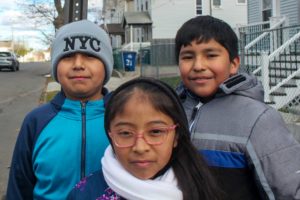 Background
Background
Partners for Places is a successful matching grant program that improves U.S. and Canadian communities by building partnerships between local government sustainability leaders, local frontline community-led groups, and place-based foundations. National funders invest in local projects developed through these partnerships to promote a healthy environment, a strong economy and well-being for all residents. Through these investments, Partners for Places fosters long-term relationships that make our communities more prosperous, livable and vibrant.
Please visit the Partners for Places webpage for more information. Here you can view our current Invitations to Apply and our Proposal Award and Guidance Document. You may also consult our Proposal and Award Guidance document to learn more about frequently asked questions.
Funder Investors
Partners for Places is supported by The JPB Foundation, Kendeda Fund, The Kresge Foundation, New York Community Trust, and the Pisces Foundation.
Want to know more about the Mini Grant Recipients of Round 1? Meet the Mini Grant Round 1 Grantees here.
ICYMI: Catch up on The Funders Network's 2020 Virtual Conference: Bridge the Divide
BY TFN STAFF
As we face unprecedented challenges to the health and economic well-being of communities across the globe, we are so heartened to see so many members in our network work to bringing people together to find common ground and inspire collective action — even if that means coming together in a virtual space.
At the outset of the coronavirus pandemic, TFN — like many, many organizations — had to rethink our annual conference, originally slated for mid-March in San Diego.
We brought together more than a dozen speakers from across the philanthropic sector and beyond to lift up philanthropy’s unique potential to bridge differences, foster connections and build partnerships — and address urgent issues such as climate change, economic disparity and racial injustice.
In case you missed any of these virtual events, we're pleased to share audio and video recordings of TFN's 2020 (Virtual) Conference: Bridge the Divide. (You'll also see some additional resources that may provide helpful context for the events listed below.)
Our virtual conference featured seven institutes, workshops and plenaries — and attracted hundreds of registrants — over two weeks of programming, including a performance by the San Diego-based Playwrights Project and a "quarantine and chill" version of our popular Sunday Night at the Movies event.
TFN’s annual conferences have always brought together leaders in philanthropy who are committed to creating communities that are sustainable, prosperous and equitable. And this year, while definitely challenging, was no exception. In addition to our annual conference programming, TFN has embarked on a year-long Bridge the Divide learning series, presenting monthly webinars on a range of economic, environmental and equity issues facing our communities. (Catch up on the Bridge the Divide learning series here.)
Thanks to all the designers and speakers for sharing your work and expertise, and for helping to make this a successful virtual event!
ICYMI | TFN's 2020 (Virtual) Conference: Bridge the Divide
Playwrights Project: Where Stories Take the Stage
May 11
Click to Download: Recording
Join us for a virtual performance by Playwrights Project, which focuses on the power of theater to connect to universal themes that impact everyone, such as the need for love, acceptance, understanding, and connection.
The San Diego-based group’s programming delves into a number of issues including immigration, foster care, military service and incarceration. Their program Border Lines/Líneas de la Frontera creates fictional plays based on real life experiences along the U.S.- Mexico border to break down barriers, demystify common stereotypes, honor cultural traditions, celebrate the joy of living, inspire hope, and build sensitivity to the challenges faced by immigrants struggling to adapt to a different culture and language.
Speakers:
Fernando Garcia, Founding Director, Border Network for Human Rights
Cecelia Kouma, Executive Director, Playwrights Project
Mabelle Reynoso, Dramaturg, Playwrights Project
Michelle Jaramillo, Director, Education Initiatives, The San Diego Foundation (Moderator)
COVID-19 and the U.S. – Mexico Border
May 12
Click to Download: Recording
More than 50 million people cross the border each year between Tijuana and San Diego, making the region home to the busiest land-border crossing in the world. It is home to a combined population of roughly five million people, making it the largest bi-national metropolitan region shared between the United States and Mexico.
And in recent years, communities on both sides of the international border have grappled with the impacts of an ongoing human rights crisis as migrants and refugees, fleeing violence in their home countries, seek asylum in the United States. As the U.S. embarks on increasingly hard-line immigration policies, leaders in philanthropy have been called to respond with urgency to the humanitarian crisis at our southern border — as well as to help shape a national conversation that centers equity, justice and compassion at the heart of this debate.
During this webinar, we’ll learn about cross-border relationships and their efforts to address a variety of social and environmental justice issues, including the current COVID-19 pandemic. Funders will hear from local experts and community leaders to learn about the complexities of the border and various dimensions of the immigration crisis, to inform and guide their long-term funding strategies.
This webinar was moderated by the International Community Foundation and is presented in partnership with Hispanics in Philanthropy.
Speakers:
Eliza Brennan, Senior Program Officer, International Community Foundation
José Franco García, Organizing Director, Environmental Health Coalition
Paulina Olvera Cáñez, Executive Director, Espacio Migrante
Hilda Vega, Deputy Director, Hispanics in Philanthropy
Steve Wright, Co-Director, 4Walls International
Supporting Materials
- ICF Border Fund Strategy
- Coronavirus, Climate Change, and the Environment
- COVID-19 Could Help Solve Climate Riddles
- The Climate Crisis, Migration, and Refugees
- Business Booming in the San Diego Tijuana Border Region
Bridge the Divide: Women of Color — Building Power and Revitalizing Democracy
May 14
Click to Download: Recording
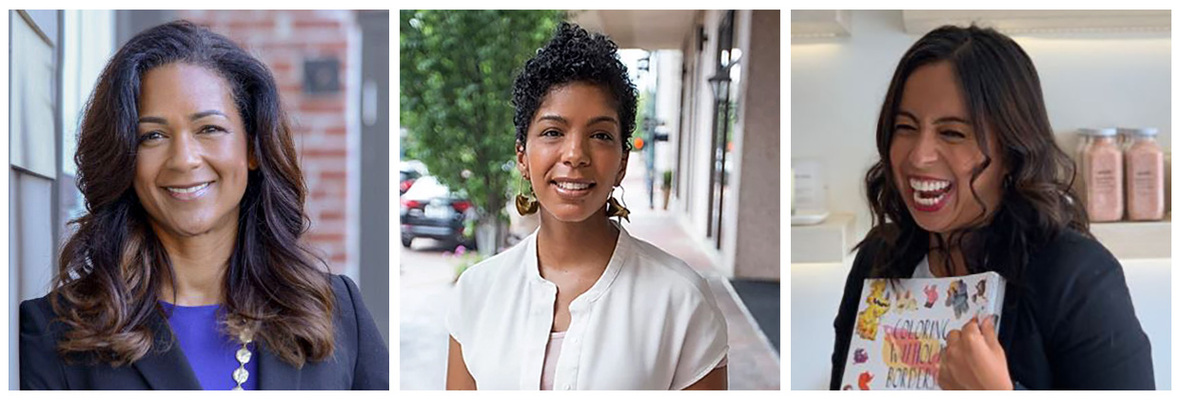
From left: Aimee Allison, Rukia Lumumba, Sandra Cordero
In a moment of roiling political divisions and high-stakes policy fights over racial, social and environmental justice and now a worldwide pandemic, women of color are emerging as leading voices and movement catalyzers.
They also representing a powerful — but often overlooked and underrepresented — voting bloc: One in five voters in presidential primaries are women of color, and they make up as much as 25 percent of the voters in key swing states such as of Texas, Florida and Arizona.
We hope you’ll join us for a candid conversation about how women of color are mobilizing action and redrawing the rules of engagement. We will hear from Aimee Allison, the founder and president of She the People, a national network elevating the political voice and power of women of color. Sandra Cordero, a political communications and engagement strategist and the former director of the Families Belong Together Coalition, and Rukia Lumumba, founder and executive director of the People’s Advocacy Institute.
Sunday Night at the Movies: North Pole
May 14
Click to Download: Recording
We invite you to quarantine and chill with us for a virtual edition of our popular Sunday Night at the Movies. We’ll screen a sneak peek of the second season of The North Pole, an irreverent and deeply moving web-series about gentrification, environmental justice, and where we call “home.” We’ll then be joined by members of the The North Pole team for a lively panel discussion moderated by TFN President and CEO Pat Smith.
Speakers:
Josh Healey, Executive Producer, The North Pole
Yvan Iturriaga, Director, The North Pole
Santiago Rosas, Actor, The North Pole
Q&A Moderator: Pat Smith, TFN President & CEO
Bridging Across Sectors: Investing in Climate Resiliency, Community Health and Equity
May 19
Click to Download: Recording
The climate crisis is having immediate and disproportionate impacts on the health and well-being of people of color and low-income communities. As health disparities are being exacerbated by the COVID-19 crisis, 2019 was recorded as the second hottest year on the planet. Using transportation justice as a lens, the session will highlight strategies being utilized for cross-sector solutions to tackle emissions reduction, chronic air pollution, and respiratory health — including how air pollution health impacts intersect with the response to the coronavirus pandemic. Addressing the gravity of these multifaceted impacts is requiring innovative approaches that bridge across national and place-based foundations, work in support of community-based visions, and leverage government investments.
This webinar will explore how investing in frontline community leadership priorities can result in effective actions toward climate resiliency and community health. The discussion will be informed by an important new report on funder and nonprofit work in the climate, health and equity arena, produced in partnership with seven philanthropy serving organizations.
Speakers:
Katie Byerly, Program Officer, The Kresge Foundation (Welcome Remarks)
Yana Garcia, Assistant Secretary for Environmental Justice and Tribal Affairs, California Environmental Protection Agency
Diane Takvorian, Executive Director, Environmental Health Coalition
Katie Valenzuela, Policy and Political Director, California Environmental Justice Alliance
Gisele Fong, Program Manager, The California Endowment (Moderator)
Additional Resources:
- Environmental Health Coalition
- CALENVIROSCREEN: A Critical Tool for Achieving Environmental Justice in California
- Environmental Justice Screening Method
- Start Here, Start Now: An environmental Justice Assessment of the City of San Diego Climate Action Plan
- BBC: How air pollution exacerbates Covid-19 (4/27/20)
- Study: SARS-Cov-2 RNA Found on Particulate Matter of Bergamo in Northern Italy: First Preliminary Evidence (4/24/20)
- The Guardian: Coronavirus detected on particles of air pollution (4/24/20)
- NY Times: New Research Links Air Pollution to Higher Coronavirus Death Rates (4/7/20)
- Climate Change, Health, and Equity Survey Findings: Gaps, Needs, and Opportunities (March 2020)
Funder Webinar Recording: First Detailed Overview Of Work And Funding At The Intersection Of Climate Change, Health, And Equity (March 26, 2020)
Think Systemically, Act Collaboratively: Empowering Networks to Align Efforts and Accelerate Impacts
May 21
Click to Download: Recording
In recent years, grantmakers have begun to experiment with systems-based approaches, operating from a deeply collaborative framework that is shifting fundamental expectations about what is possible. During this webinar, we’ll explore how systems thinking and collaborative networks can offer a powerful and nimble way to make sense of, and be responsive to, changing landscapes and needs, particularly within the context of the current pandemic. Please join us to increase your understanding of how systems thinking and collaborative networks can break down silos, build cross-sector collaboration, and advance our collective impacts.
Speakers:
Eleni Sotos, Senior Program Officer, Garfield Foundation (Co-Facilitator)
Ruth Rominger, Collaborative Networks Program Director, Garfield Foundation (Co-Facilitator)
Additional Resources:
- Systems Practice, The Omidyar Group (A terrific online, guided course and workbook, available to download on its own, on systems thinking and strategy)
- GEO’s Systems Grantmaking Resource Guide
- FSG, The Water of Systems Change
Reclaiming Our Story: Words, Stories and Narrative in the time of COVID-19
May 26
Click to Download: Recording
Now more than ever, we need to center racial justice and equity in how we speak, write and tell stories. This applies to individuals, organizations, movements and philanthropy. Join us for 75 minutes to hear about new research and strategies for communications and organizing that can shift the narrative around essential workers, the importance of home to public health, and what an equitable recovery should look like. All of the speakers are dynamic (even in Zoom) and each will bring a unique perspective about storytelling. Collectively they will share research, messaging guides, short videos and tips about how to create new content in the midst of a pandemic. We promise you’ll be smarter and better equip to tell (and support) a justice and equity-centered story after this webinar!
Speakers:
Anat Shenker Osorio, Principal, ASO Communications
Luisa Dantas, Director and Producer, Jolu Productions
Maurice BP Weeks, Co-Executive Director, Action Center on Race and the Economy
Marisol Bello, Director of Content Strategy and Development, Community Change
Additional Resources
-
Check out Race Class Narrative Action and The Housing Justice Narrative project for up-to-date research and guidance about language (and the attached language guide on policing and protest)
-
Support the work of groups doing movement aligned research and communications on racial and economic justice, like the Action Center on Race and the Economy.
-
Check out this ad from Race Class Narrative Action and Black Visions Collective in Minnesota, produced by Luisa Dantas and Jolu Productions.
Featured image at top of post: Screenshot of our virtual session, "Reclaiming Our Story: Words, Stories and Narrative in the time of COVID-19."
[/vc_column_text][/vc_column][/vc_row]
In the wake of a deadly 'derecho,' Greater Cedar Rapids Community Foundation launches Disaster Recovery Fund
BY TFN STAFF
It’s been more than a week since a severe storm system known as a derecho tore through large swaths of the Midwest with winds topping 100 mph, causing widespread damage and leaving more than a million customers without power.
The Iowa city of Cedar Rapids, and surrounding Linn County, has borne the brunt of the derecho’s impact, with recovery and relief efforts complicated by a sudden storm that hit amid an ongoing coronavirus epidemic.
In response to this disaster, the Greater Cedar Rapids Community Foundation has established the Disaster Recovery Fund to channel charitable contributions to support Linn County communities — and provide resources where they are needed most, according to the foundation.
“The derecho has created a widespread disaster for our area,” said Les Garner, president and CEO of the Greater Cedar Rapids Community Foundation. “This fund provides a way for donors and supporters to directly give to our community’s greatest needs.”
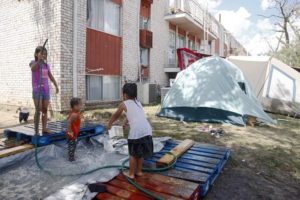
The foundation, a member of the The Funders Network, is a participant in TFN’s PPREP learning cohort. PPREP, which stands for Philanthropic Preparedness, Resiliency and Emergency Partnership, was created to provide resources for community foundations to build their skills and leadership capacity in order to be better informed and prepared should a natural disaster strike their community.
Thousands of Cedar Rapids residents have been without power since they were hit by the fierce derecho. Nearly 97 percent of homes and businesses in surrounding Linn County were initially without electricity, and authorities have said it could take at least a week before full power is restored.
At least four deaths in the region have been attributed to the storm.
Hurricane-force winds gusting up to 112 mph in the rare derecho storm flattened 37 million acres of crops in the Midwest, including 14 million in Iowa, and damaged many homes and businesses, according to the U.S. Department of Agriculture.
But unlike a hurricane, which typically prompt a pre-disaster emergency declaration that allow emergency services to theoretically gear up in advance, the derecho hit vast swaths of the state with almost no warning.
“More than 1,000 homes in the Cedar Rapids area have been declared uninhabitable, raising the specter that hundreds of families could be without a place to stay at a time when the state remains in the grip of the pandemic, reaching an all-time high of 832 new coronavirus cases on Saturday,” according to the Washington Post.
Initially, the Disaster Recovery Fund will provide basic needs for those disproportionately affected by the derecho destruction. In the long term, the fund will adapt to evolving needs.
“Resources will be directed to where the need is most pressing,” said Garner. “We are working with nonprofits, city leaders, and community partners including the Linn Area Partners Active in Disaster (LAP-AID), to determine needs and distribute charitable resources in the most effective and efficient way. Philanthropy can help fill the gaps of needs not being met by other resources. This fund connects donors to help meet those needs.”
Read the foundation’s full announcement here.
Additional Resources
To learn more about how to help those impacted by the Midwest derecho, the Iowa Council of Foundations, another participant in TFN’s PPREP learning cohort, has prepared this fact sheet of resources for communities. In it you can find information on how to donate, where to volunteer, and how to access resources such as food distribution and other assistance. If you have additional resources to include, please email info@iowacounciloffoundations.org.
To find out more about TFN’s PPREP cohort, which is drawn from a 10-state Midwestern region, please reach out to Vice President and Director, Member Services Maureen Lawless at maureen@fundersnetwork.org.
Featured image at top: Last week’s derecho left widespread damage in the Cedar Rapids area. Photo credit: USA Today.
Mobility Policy Briefings: Catch up on the virtual learning series
BY TFN STAFF
The ongoing coronavirus pandemic is forcing communities to grapple with faltering economies and unprecedented disruptions to daily life — impacts that have left transit systems in peril. Trying to make sense of this looming transit crisis? Check in with the Mobility Policy Briefings, a series of virtual conversations and knowledge-sharing brought to you by The Funders Network’s Collaborative on Sustainable Mobility and Equitable Access.
The virtual briefings are led by Darryl Young, co-chairperson of the collaborative's design committee and director of The Summit Foundation’s Sustainable Cities Program, and feature Martha Roskowski of Further Strategies, the collaborative’s program lead for TFN. In each installment, they are joined by diverse voices from across the sector who provide insight and expertise on the current state of transit affairs.
Mobility Policy Briefings: ICYMI
Did you miss the most recent Mobility Policy Briefings? Catch up on the series by clicking on the titles below.
To stay up-to-date on future installments, be sure to “like and subscribe” to their YouTube channel.
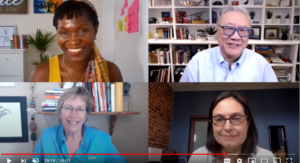
Beth Osborne of Transportation for America and Martha Roskowski of Further Strategies.
Federal Mobility Policy with Rep. Chuy Garcia and Beth Osborne, T4A (Aug. 14)
As the transit crisis deepens, this installment looks at how Washington is responding and how transit is is linked to inequality, health and climate. Also in this episode: Learn more about the Future of Transportation Caucus and what it hopes to achieve in Congress. Is there a chance for re-writing the rules for federal transportation funding? Lastly, the guests will examine the role of grassroots organizations in prioritizing transit.
- U.S. Rep. Jesús G. "Chuy" García, (D-Ill.), Co-chair of the Future of Transportation Caucus
- Beth Osborne, Director, Transportation for America
America’s Transit Crisis (July 30)
As congress wrestles with details of the stimulus package amid an ongoing transit crisis, this briefing explores how local advocates are pushing to prioritize transit funding and how a new matching fund could help.
The briefing also explores how some state departments of transportation are pushing actions to support walking, biking and transit.
Guests:
- Barb Chamberlain, Director, Active Transportation Division, Washington State Department of Transportation
- Beth Osborne, Director, Transportation for America
Inequality in America (July 17)
This briefing includes updates on what’s happening in Congress regarding federal stimulus proposals and transportation spending. Also in this installment: an examination of the history of land use and transportation in America — and how it perpetuates inequality today.
Guests also discussed what would be on a transportation to-do list for a new presidential administration.
Guests:
- Stephanie Gidigbi, Director of Policy & Partnerships, Healthy People & Thriving Communities Program, Natural Resources Defense Council
- Beth Osborne, Director, Transportation for America
The COVID-19 Transit Crisis: Inequality in America (July 9)
The global coronavirus pandemic, coupled with a faltering economy, is contributing to a national transit crisis as systems are forced to cut or eliminate service. These cuts expose the inequality of mobility in America, which leaves marginalized communities without access to jobs and health care and forces car use which contributes to climate change. The Collaborative on Sustainable Mobility and Equitable Acces, an initiative of The Funders Network, presents a special briefing on the transit crisis, what local advocates are doing, and how national philanthropy can support their work through a new matching fund.
Guests:
- David Bragdon, Executive Director, TransitCenter
- Jarred Johnson, Director, TransitMatters
Federal Mobility and Access Policy Briefing (July 6)
This installment includes an update on the INVEST Act and its uncertain future in the Senate, a look at how federal policy affects local transportation — and a discussion around helping people of color step into power.
Guests:
- Keith Benjamin, Director, City of Charleston Department of Transportation
- Beth Osborne, Director, Transportation for America
Federal Mobility Policy Update (6/19)
In this session, our guests weigh in with the good, the bad and the ugly about transportation legislation at the federal level.
Guests:
- Beth Osborne, Director, Transportation for America
- Caron Whitaker, Vice President, Government Relations, League of American Bicyclists
Federal Transportation Funding Update (6/5)
Guests:
- Beth Osborne, Director, Transportation for America
- Caron Whitaker, Vice President, Government Relations, League of American Bicyclists
COVID19 Federal Transportation and Recovery Policy (6/1)
Guests:
- Jeff Davis, Senior Fellow, Eno Center for Transportation
- Beth Osborne, Director, Transportation for America
COVID-19 Federal Transportation and Recovery Update (5/15)
Guests:
- Billy Fleming, Wilks Family Director, Ian L. McHarg Center in the University of Pennsylvania’s Weitzman School of Design
- Beth Osborne, Director, Transportation for America
Transportation and COVID-19 Federal Policy Update (4/27)
Guests:
- David Bragdon, Executive Director, TransitCenter
- Beth Osborne, Director, Transportation for America
Transportation and Coronavirus Federal Policy Briefing (4/7)
Guests:
- David Bragdon, Executive Director, TransitCenter
- Beth Osborne, Director, Transportation for America
About the Collaborative on Sustainable Mobility and Equitable Access
The Collaborative on Sustainable Mobility and Equitable Access, housed at TFN, is an action-oriented effort that recognizes the urgency for ambitious — and quickly implemented — solutions to limit the devastating impacts of climate change. The collaborative brings together place-based, regional and national funders to share stories, examine best practices and explore critical issues. The collaborative recently launched the Mobility Fund, a new matching fund in support of local advocacy.
The collaborative is led by a core group of regional, place-based and national volunteers who are shaping and guiding work on transportation, including funders from the Barr Foundation, The Bullitt Foundation, Houston Endowment, TransitCenter, The George Gund Foundation, The Energy Foundation, The Joyce Foundation and The Summit Foundation.
Learn More
For more information about TFN’s Collaborative on Sustainable Mobility and Equitable Access, contact Martha Roskowski at martha@furtherstrategies.com or 303-895-0951.
Deadline Extended! Share your ideas for The Funders Network's 2021 Annual Conference
By TFN Staff
|
Please note that we have extended the deadline for the #TFN2021 Call for Ideas to Aug. 14. Read on for more details about TFN's 2021 Annual Conference. During these gut-wrenching times, it is easy — and understandable — to feel overwhelmed. Overwhelmed by an ongoing global pandemic that is extracting a disproportionately high toll on the health and incomes of communities of color. Overwhelmed by the wanton disregard for human life, captured in video after video. Overwhelmed by the recognition that safety nets — if they existed — have failed, social connections have frayed and corrosive abuses of power persist. But we also have an opportunity — and an obligation — to chart new courses despite turbulent waters. How do we help communities address and overcome the impacts of the novel coronavirus in ways that are urgent and equitable? How can we help dismantle the systemic racism that touch every aspect of our lives, including the food we eat, the air we breathe, the water we drink and the places where we work and play? And how do we use our privilege and power, as a sector and as individuals, to amplify calls for racial justice in ways that are meaningful, effective and authentic? You are invited to contribute your ideas and insights as we craft a learning agenda for our 2021 conference, one that is dedicated to helping our members and partners gain the tools, build relationships and craft strategies that will help us stand together, work together — and ultimately rise together — to meet this unprecedented moment. The new deadline for Call for Ideas Submissions is Aug. 14. Please take a look at our Submission Guidelines for more information. Ideas can be shared via our Online Submission Form. We hope you'll join us March 15 to 17 for TFN's 2021 Annual Conference: Rise Together, tentatively scheduled for New Orleans, La. Read on for more information on our conference's focus and coronavirus contingency planning. |
|
Centering Racial Equity |
|
TFN’s mission is to leverage philanthropy’s unique potential to help create communities and regions that are sustainable, prosperous and just for all people. But we recognize that these goals cannot be achieved without first challenging and confronting the systemic imbalances in power, privilege and access to resources that disproportionately impact communities of color, specifically Black people, and create stark inequities that continue to harm racialized and marginalized people and places. In keeping with our theme — Rise Together — we're encouraging session ideas that are interdisciplinary, cross-cutting and grounded in racial equity. We are taking a different approach this year through this Call for Ideas (instead of a formal Call for Session Proposals), by taking the pulse of our membership to understand what issues or challenges are top-of-mind for you. |
 |
About Our Conference |
|
|
TFN’s 2021 Annual Conference: Rise Together will bring together funders from across North America to explore the strategies and stories that are creating more equitable, sustainable, and resilient places to live — work that has taken on increased urgency as we face the dual challenges of a global pandemic and structural racism. Our signature annual event is an opportunity to highlight philanthropy’s potential for meaningful impact in our regions and communities, and hear from diverse and thought-provoking voices on issues such as protecting our natural resources, building inclusive economies and addressing injustices. |
 |
COVID ContingenciesGiven the uncertainties of the ongoing coronavirus pandemic, and our commitment to prioritizing the safety of our members, team and their communities, TFN will plan for both in-person and virtual conference options. By baking contingencies into our planning, we will be able to pivot to an online model if needed. As described in the guidelines, we ask for your help and input in this new planning process through this Call for Ideas. Our goal is to share the learning, resources and best practices that will help our members deepen their impact as grantmakers and develop their professional networks — be it in person or virtually. We look forward to hearing from you! |
|
|
Building Impact Beyond the Ballot Box: Join our webinar on local leadership and community engagement
BY TFN STAFF
Legislative victories on important issues are rightfully celebrated — but meaningful impact also hinges on equitable implementation, community engagement and local leadership that can fuel that forward momentum long after votes are tallied.
How can funders and anchor institutions work together to support community power-building and help create leadership pipelines and pathways?
Join us for an upcoming webinar, Representation Matters: Deepening Leadership Pipelines and Building Community Power, Aug. 12 at 2 p.m. ET.
We'll explore these questions and more as we learn how funders and anchor institutions in California’s diverse San Joaquin Valley are developing a $4 million, three-year collaborative fund to leverage a historic opportunity to reform land use and power dynamics across the region.
Tucked into a wealthy and progressive state, the San Joaquin Valley nonetheless has some of the highest rates of economic disparity, pollution and poverty in the country.
Currently, elected and appointed representatives in the region do not reflect the changing demographics of the San Joaquin Valley and have consistently failed to take actions to improve local conditions.
Of paramount importance to the future of the area is the upcoming implementation of two new laws about groundwater management and drinking water. The implementation of these laws has the potential to reform decision-making around land/water management, as well as impact the future of health, housing, and environmental sustainability in the region.
The San Joaquin Valley Funder Collaborative, a working group of TFN’s Smart Growth California initative, was founded
in 2016 as a response to the needs and opportunities in the San Joaquin Valley region. Learn more about the collaborative’s $4 million fund here.
In this webinar, we’ll hear from funders and anchor institutions that are working with community partners to ensure equitable implementation while deepening leadership pipelines and pathways towards long-term progressive governance for water issues and beyond.
Representation Matters: Deepening Leadership Pipelines and Building Community Power
Aug. 12 at 2 p.m. ET
Speakers:
Natalie Garcia-Grazier, Director of Strategic Partnerships, Community Water Center
Veronica Garibay, Co-Founder and Co-Director, Leadership Counsel for Justice and Accountability
Ellen Braff-Guajardo, Director of Regional Programs, Sierra Health Foundation/The Center at Health Program Management
Moderator:
Juliet Christian-Smith, Senior Program Officer, Water Foundation
About ‘Bridge the Divide’ webinars
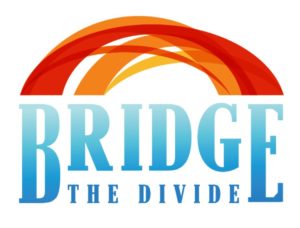
This webinar is part of an ongoing learning series built around the theme “Bridge the Divide,” which lifts up philanthropy’s unique potential to bridge differences, foster connections and build partnerships — and address urgent issues such as climate change, economic disparity and racial injustice.
Other webinars in this series:
January 2020 – Bridge the Divide: Climate, Land Use and Transportation Connections
February 2020 – Bridge the Divide: Public Utilities as Anchor Institutions
April 2020 – Bridge the Divide: Economic Democracy and Sharing Power
June 2020 – Equity First: Community-led Approaches to Tackling the Climate Crisis
July 2020 – Keeping it Local: Strategies to Support Power-Building and Economic Self-Determination
Please register for this funder-only webinar by Aug. 7 to receive log-in details
New Grant Opportunities: The latest round of Partners for Places brings new opportunities for sustainability grants — and an increased focus on racial equity and community collaboration
BY TFN STAFF
The Funders Network (TFN), in partnership with the Urban Sustainability Directors Network (USDN), is pleased to announce the opening of the latest round of the Partners for Places grant program.
The deadline to submit proposals is Sept. 18.
This latest round of funding includes Invitations to Apply for two funding opportunities:
Invitation to Apply: General Grant
Invitation to Apply: Green Stormwater Infrastructure (GSI) Grant
Partners for Places is a successful matching grant program that improves communities by supporting equitable sustainability projects that build partnerships between local government leaders, community groups and place-based foundations in the U.S. and Canada.
National funders invest in local projects developed through these partnerships to promote a healthy environment, a strong economy and well-being for all residents.
Through these investments, Partners for Places fosters long-term relationships that make our communities more resilient, prosperous and equitable.
These one-to-one matching awards provide partnership investments between $25,000 and $75,000 for one-year projects, or between $75,000 and $150,000 for two-year projects, with a 1:1 match required by one or more local foundations.
A New Strategic Framework
Collaboration and partnership are at the heart of the Partners for Places program.
Since 2012, the matching grant program has helped foster dozens of new partnerships between local government sustainability leaders and place-based funders across the U.S. and Canada — relationships that often continue long after the original Partners for Places project has been completed.
In recent years, the grant program has adopted a strategy that leads with racial equity and a sharper focus on how best to advance equitable and sustainable communities.
Starting with the Invitations to Apply released this month (Round 17), the primary partners have been expanded to also include local frontline community-led groups.
This collaborative partnership model is intended to more deeply embed the values and practice of racial equity into local community decision-making processes.
About Partners for Places
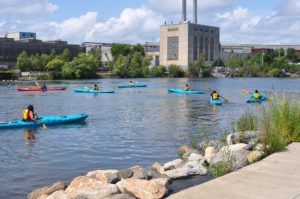
Partners for Places is led by TFN in partnership with the USDN. As in previous grant cycles, we are excited to partner with Green Infrastructure Leadership Exchange, a practitioner network that supports communities seeking to grow green stormwater infrastructure programs, to support outreach efforts and participate in reviewing stormwater infrastructure project proposals.
To date, Partners for Places has awarded nearly $7.4 million across North America in this successful matching grant program, leading to over $16 million in investments.
The program is supported by seven investor foundations: The JPB Foundation, The Kendeda Fund, The Kresge Foundation, The New York Community Trust, Pisces Foundation, The Summit Foundation, and Surdna Foundation.
Submitting a Successful Proposal
Partners for Places currently administers three grant programs: General Grants, Green Stormwater Infrastructure (GSI) Grants and a Mini Grants program.
In July 2020 Partners for Places is offering two grant opportunities as part of Round 17:an Invitation to Apply for a General Grant and an Invitation to Apply for a GSI Grant.
General Grants
General Grants in Round 17 will:
1. Create or improve collaborative partnerships between a local government that is a USDN member or a USDN-affiliated regional partner network, frontline community-led group(s), and place-based funder(s).
2. Advance an equitable sustainability project that addresses frontline community priorities.
3. Apply a racial equity approach to both the collaboration and the project planning/implementation.
Download Invitation to Apply: General Grant
Green Stormwater Infrastructure (GSI) Grants
GSI Grants in Round 17 will support planning processes or projects that local government/utility water directors, and local, place-based funder(s) consider important to advancing GSI goals in their communities.
Download Invitation to Apply: GSI
The application deadline for Round 17 is Sept. 18, 2020 (by 11:59 p.m., any time zone).
Please visit the Partners for Places webpage for more information. Here you can view our promotional video, download the Invitation to Apply: General Grant and the Invitation to Apply: GSI Grant. (Both of those documents include Grant Application and Budget forms.) You may also consult the Partners for Places Application and Award Guidance document to learn more.
Additional Resources
Register for our Round 17 Informational Webinar designed to help potential applicants prepare a proposal on Aug. 12 at 3 p.m. ET. Register here.
Learn about our latest round of grantees here.
Read this feature story about Partners for Places in in Inside Philanthropy here.
For more information about the Partners for Places program, please feel free to reach out to Ashley Quintana at ashley@fundersnetwork.org.

Featured image at top: The City of Los Angeles is one of dozens of Partners for Places grantees working with local funders and partners to create more vibrant, healthy and prosperous communities Photo credit: Great Streets L.A.
ICYMI - Center for Disaster Philanthropy's COVID-19: Strategic Approaches for Funders webinar series
BY TFN Staff
The Center for Disaster Philanthropy (CDP) recently wrapped up a seven-part webinar series, COVID-19: Strategic Approaches for Funders, which offered a range of in-depth learning opportunities focused on the pandemic's impact on vulnerable populations, as well as ways philanthropy can respond effectively — in both immediate relief as well as long-term recovery efforts.
During the final webinar in the series, focusing on the mental health impacts of the pandemic. CDP announced the launch of a new Disaster Philanthropy Playbook strategy, along with a Mental Health, Bereavement and Grief tool kit, tip sheet and compilation of resources. These tools and resources are designed to support philanthropic knowledge and encourage funding that addresses these issues as part of disaster relief and recovery.
As CDP noted: "With COVID-19 there seem to be more questions than answers, particularly for funders who want to respond effectively and efficiently. This series of webinars brings expert panelists together to address some of the most pressing issues, including getting money out the door quickly, supporting vulnerable populations and investing in local communities."
This webinar series was co-sponsored by TFN in addition to Council on Foundations, Grantmakers in Health, National Center for Family Philanthropy, Grantmakers in Aging, National VOAD, InterAction and United Philanthropy Forum. (Supporting funders are noted on the individual webinar pages.)
TFN works with the CDP to provide curriculum, facilitation and technical assistance for our PPREP learning cohort. PPREP, which stands for Philanthropic Preparedness, Resiliency and Emergency Partnership, was created to provide resources for community foundations to build their skills and leadership capacity in order to be better informed and prepared should a natural disaster strike their community.
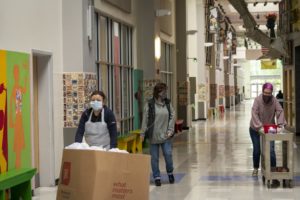
Click on the links below to access webinar recordings, slide decks and responses to unanswered questions for each session in the series.
COVID-19: Making Effective Rapid Response Grants (April 14)
The first webinar in the seven-part series explored how funders can respond to community needs by getting money out the door quickly, while maintaining accuracy and accountability.
CDP Director of Strategic Initiatives Sally Ray moderated the discussion and panelists included:
- Shalini Eddens, Senior Program Director, Urgent Action Fund for Women’s Human Rights
- Edgar Villanueva, Senior Vice President of Programs and Advocacy, Schott Foundation for Public Education
COVID-19: Managing Multiple Disasters Amid the Pandemic (April 28)
In the midst of the COVID-19 pandemic, tornado season has already begun; 23 states are at risk of moderate to major flooding this spring; and early forecasts predict four major hurricanes and an intense wildfire season this year. This webinar explored what effective disaster philanthropy looks like during a pandemic and how funders can respond to other disasters this year while still supporting COVID-19 response and recovery.
CDP Director of Strategic Initiatives Sally Ray moderated the discussion and panelists included:
- Dr. Leonard Marcus, Founding Co-Director, National Preparedness Leadership Initiative at Harvard University
- Regine A. Webster, Vice President, Center for Disaster Philanthropy
COVID-19: Place-based Grantmakers and Investing in Local Communities (May 12)
This webinar explored place-based grantmaking and the importance of strengthening local communities and organizations to create a new philanthropic and nonprofit landscape, focused on recovery, that prioritizes equity, partnership and collaboration.
CDP Director of Strategic Initiatives Sally Ray moderated the discussion and panelists included:
- Carmen James Randolph, Vice President for Programs, Greater New Orleans Foundation
- Maureen Lawless, Vice President and Director, Member Services, The Funders Network
COVID-19: How Philanthropy Can Stand Up for Vulnerable Populations (May 26)
The fourth installment of CDP's COVID-19 Series explored the Coronavirus Aid, Relief, and Economic Security (CARES) Act and its impact on nonprofits and vulnerable communities.
CDP Director of Strategic Initiatives Sally Ray moderated the discussion and panelists included:
- Aaron Dorfman, president and CEO, National Committee on Responsive Philanthropy
- Ruth Madrigal, principal at KPMG, Washington National Tax Office
COVID-19: Grantmaking to Support Children and Older Adults (June 9)
The COVID-19 pandemic has touched everyone, but the youngest and oldest among us are being disproportionately affected. This webinar explored explored how these two groups are being impacted by the pandemic – and how philanthropy can help meet these needs.
CDP Vice President Regine A. Webster moderated the discussion and panelists included:
- Elaine Ryan, vice president for government affairs, AARP
- Dr. Lynette M. Fraga, CEO, Child Care Aware® of America
COVID-19: Managing a Global Response (June 23)
The sixth COVID-19 Series webinar explored the unique aspects of response and recovery for a worldwide pandemic, with a focus on international grantmaking to support communities in developing nations. T
CDP Vice President Regine A. Webster moderated the discussion and panelists included:
- Dr. Valerie Nkamgang Bemo, MD-MPH, deputy director, emergency response, global development, Bill & Melinda Gates Foundation
- Pilar Pacheco, senior program officer, emergency response, global development, Bill & Melinda Gates Foundation
- Natalie Ross, vice president of resource development & strategic opportunities,
Council on Foundations
COVID-19: Support for Mental Health, Bereavement and Grief (July 14)
As the pandemic continues, serious mental health needs are emerging, including mental illness, depression, anxiety and suicide risk. The seventh and final COVID-19 Series webinar was designed to help raise awareness of the intersection of mental health and COVID-19.
CDP Assistant Director of Major Initiatives Tanya Gulliver-Garcia moderated the discussion and panelists included:
- Huong Diep, consulting psychologist, Headington Institute
- Lisa Furst, vice president for policy, advocacy and education, Vibrant
- Heather Nesle, president, New York Life Foundation
Featured image at top of post: Aerial view of a food distribution site at the Alamodome that provided food to more than 2,000 households in San Antonio, Texas. (USDA Photo by Lance Cheung, via CDP.)
Call for Ideas! Help us craft a learning agenda for #TFN2021
By TFN Staff
|
During these gut-wrenching times, it is easy — and understandable — to feel overwhelmed. Overwhelmed by an ongoing global pandemic that is extracting a disproportionately high toll on the health and incomes of communities of color. Overwhelmed by the wanton disregard for human life, captured in video after video. Overwhelmed by the recognition that safety nets — if they existed — have failed, social connections have frayed and corrosive abuses of power persist. But we also have an opportunity — and an obligation — to chart new courses despite turbulent waters. How do we help communities address and overcome the impacts of the novel coronavirus in ways that are urgent and equitable? How can we help dismantle the systemic racism that touch every aspect of our lives, including the food we eat, the air we breathe, the water we drink and the places where we work and play? And how do we use our privilege and power, as a sector and as individuals, to amplify calls for racial justice in ways that are meaningful, effective and authentic? You are invited to contribute your ideas and insights as we craft a learning agenda for our 2021 conference, one that is dedicated to helping our members and partners gain the tools, build relationships and craft strategies that will help us stand together, work together — and ultimately rise together — to meet this unprecedented moment. Call for Idea Submissions are due by Aug. 6. Please take a look at our Submission Guidelines for more information. Ideas can be shared via our Online Submission Form. We hope you'll join us March 15 to 17 for TFN's 2021 Annual Conference: Rise Together, tentatively scheduled for New Orleans, La. Read on for more information on our conference's focus and coronavirus contingency planning. |
|
Centering Racial Equity |
|
TFN’s mission is to leverage philanthropy’s unique potential to help create communities and regions that are sustainable, prosperous and just for all people. But we recognize that these goals cannot be achieved without first challenging and confronting the systemic imbalances in power, privilege and access to resources that disproportionately impact communities of color, specifically Black people, and create stark inequities that continue to harm racialized and marginalized people and places. In keeping with our theme — Rise Together — we're encouraging session ideas that are interdisciplinary, cross-cutting and grounded in racial equity. We are taking a different approach this year through this Call for Ideas (instead of a formal Call for Session Proposals), by taking the pulse of our membership to understand what issues or challenges are top-of-mind for you. |
 |
About Our Conference |
|
|
TFN’s 2021 Annual Conference: Rise Together will bring together funders from across North America to explore the strategies and stories that are creating more equitable, sustainable, and resilient places to live — work that has taken on increased urgency as we face the dual challenges of a global pandemic and structural racism. Our signature annual event is an opportunity to highlight philanthropy’s potential for meaningful impact in our regions and communities, and hear from diverse and thought-provoking voices on issues such as protecting our natural resources, building inclusive economies and addressing injustices. |
 |
COVID ContingenciesGiven the uncertainties of the ongoing coronavirus pandemic, and our commitment to prioritizing the safety of our members, team and their communities, TFN will plan for both in-person and virtual conference options. By baking contingencies into our planning, we will be able to pivot to an online model if needed. As described in the guidelines, we ask for your help and input in this new planning process through this Call for Ideas. Our goal is to share the learning, resources and best practices that will help our members deepen their impact as grantmakers and develop their professional networks — be it in person or virtually. We look forward to hearing from you! |
|
|

